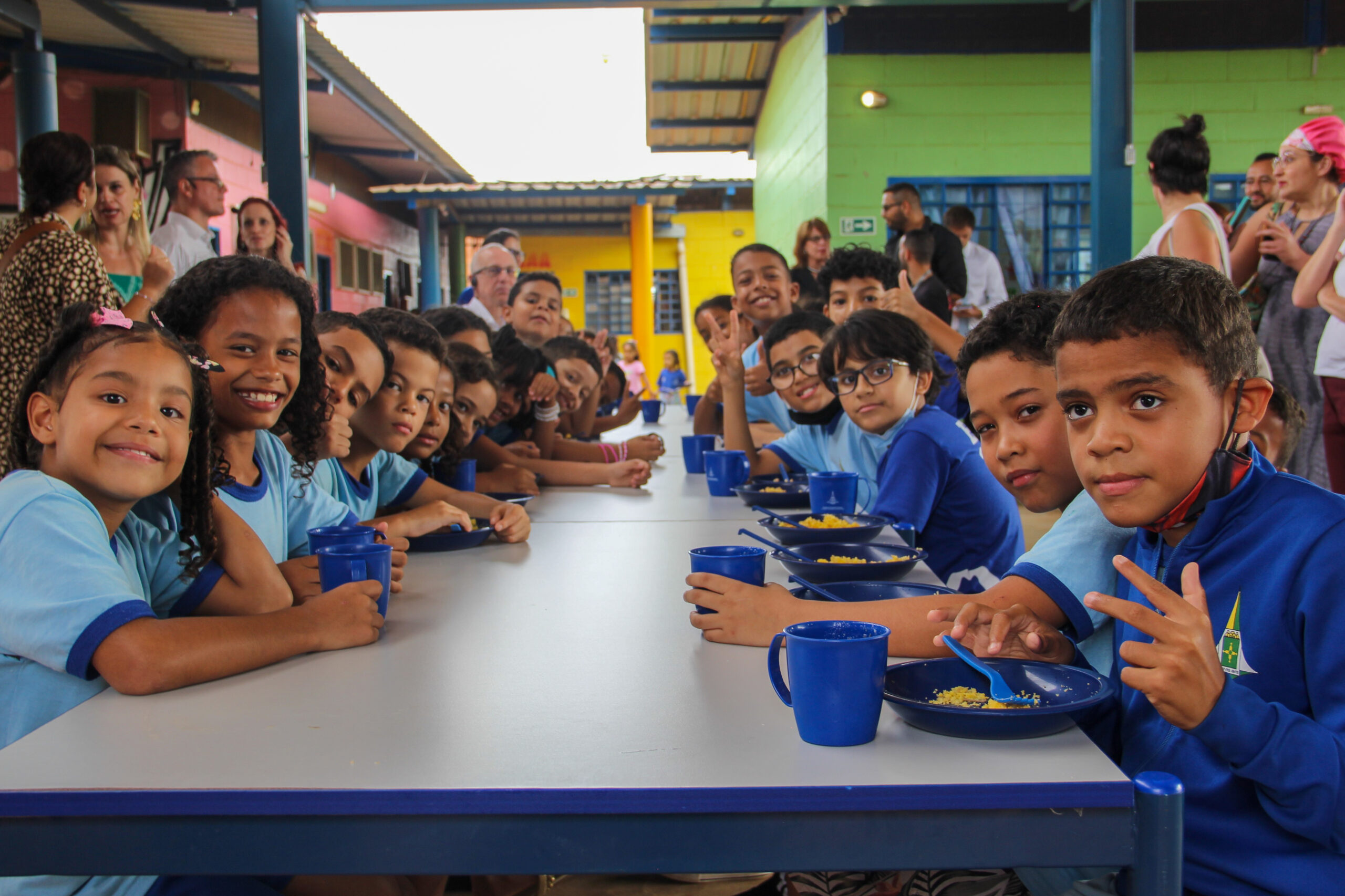
May 28 is World Nutrition Day, a date on which the World Food Programme (WFP) Centre of Excellence against Hunger in Brazil highlights the enormous importance of school feeding as a key strategy in the fight against child malnutrition in the midst of global crises. With almost half of those going hungry in the current global food crisis being children, school feeding programmes emerge as an essential response to address immediate challenges and build a healthier and more prosperous future for future generations.
“Educating and feeding children are vital investments for a brighter future. School feeding plays a crucial role in promoting children’s nutrition and development and the WFP Centre of Excellence has been promoting successful programmes, such as the National School Feeding Programme (PNAE), for almost 13 years,” says Eliene Souza, from the WFP Centre of Excellence against Hunger Projects team in Brazil.
Recent WFP data reveals that around 153 million children under the age of eighteen face acute food insecurity, representing almost half of the 345 million people facing acute hunger due to the global food crisis. This situation is alarming, as poverty and the deteriorating nutritional and health status of children will jeopardize their educational recovery, since the health, nutrition and well-being of students are key determinants of educational outcomes.
School feeding programmes must be a central part of the response to the global food crisis. These programs not only address the immediate hunger and nutritional needs of children, but also lay the foundations for the development of human capital, with benefits for children, communities and countries. Brazil’s school feeding programme is a global benchmark, feeding around 40.2 million children every day.
Currently, the WFP directly supports 15.1 million school children in 57 countries with school meals and snacks. It also works in partnership with governments and national school feeding programmes to increase their effectiveness and reach and is present in 71 countries in this context.
Centre of Excellence support for school feeding
The WFP Centre of Excellence against Hunger in Brazil has been promoting South-South and Triangular Cooperation for 13 years to support other countries in the Global South with school feeding initiatives as a tool to promote food and nutrition security for children and adolescents.
Among the Centre’s initiatives is the Nurture the Future project, which has produced publications on the multiple burden of malnutrition and especially overweight and obesity in Brazil and the cooperating countries (Colombia and Peru), as well as strengthening knowledge networks and participating in national and international seminars on the subject. The project was developed through a partnership between the General Coordination of Food and Nutrition of the Brazilian Ministry of Health, the Centre of Excellence against Hunger of the World Food Programme (WFP) and the Brazilian Cooperation Agency for the exchange of experiences between Brazil, Colombia and Peru.
In addition, the Centre also carries out face-to-face and remote visits with countries from the Global South interested in better understanding the Brazilian school feeding system, promoting an exchange of knowledge on the subject between the countries, as well as being able to support the countries through policy advice, advocacy work with governments, information sharing, and the joint drafting or review of documents – such as legislative bills, development plans, national strategies and school feeding programme documents.




